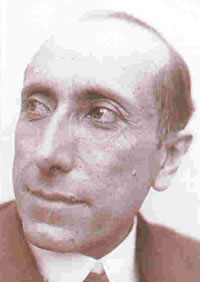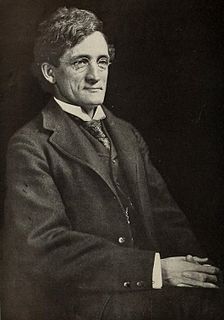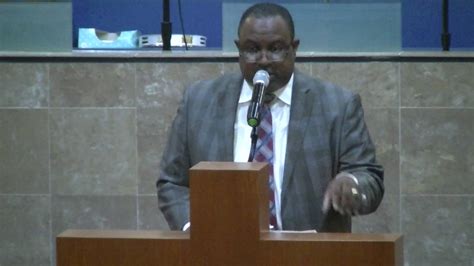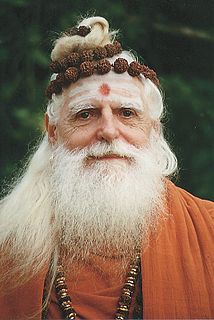A Quote by George Berkeley
That food nourishes, sleep refreshes, and fire warms us; that to sow in the seed-time is the way to reap in the harvest, and, in general, that to obtain such or such ends, such or such means are conducive, all this we know, not by discovering any necessary connexion between our ideas, but only by the observation of the settled laws of nature, without which we should be all in uncertainty and confusion, and a grown man no more know how to manage himself in the affairs of life than an infant just born.
Quote Topics
Affairs
Any
Between
Born
Conducive
Confusion
Connexion
Discovering
Ends
Fire
Food
General
Grown
Grown Man
Harvest
Himself
How
Ideas
Infant
Just
Know
Know How
Laws
Laws Of Nature
Life
Man
Manage
Means
More
Nature
Necessary
Observation
Obtain
Only
Our
Reap
Seed
Settled
Should
Sleep
Sow
Than
Time
Uncertainty
Us
Way
Which
Without
Related Quotes
The farmer doesn't sow any seed; he chooses it carefully for by experience he knows that the harvest will be of the same Nature of the sowing. The wise man observes the laws of life and lives accordingly. Therefore, you sow in the furrow of life generous and beneficial procedures for all that according to the law your harvest, being good will make your life better.
It is often said it is no matter what a man believes if he is only sincere. This is true of all minor truths, and false of all truths whose nature it is to fashion a man's life. It will make no difference in a man's harvest whether he thinks turnips have more saccharine matter than potatoes--whether corn is better than wheat. But let the man sincerely believe that seed planted without ploughing is as good as with, that January is as favorable for seed sowing as April, and that cockle seed will produce as good a harvest as wheat, and will it make no difference?
It seems to be a general belief that the will of God is to make things distasteful for us, like taking bad-tasting medicine when we are sick, or going to the dentist. Somebody needs to tell us that the sunrise is also God's will. There is the time of harvest, the harvest which will provide food and clothes for us, without which life could not be sustained on earth. God ordered the seasons-they are his will. In fact, the good things in life far outweigh the bad. There are more sunrises than cyclones.
How shall we define occultism? The word is derived from the Latin occultus, hidden; so that it is the study of the hidden laws of nature. Since all the great laws of nature are in fact working in the invisible world far more than in the visible, occultism involves the acceptance of a much wider view of nature than that which is ordinarily taken. The occultist, then, is a man who studies all the laws of nature that he can reach or of which he can hear, and as a result of his study he identifies himself with these laws and devotes his life to the service of evolution.
The laws of Nature, that is to say the laws of God, plainly made every human being a law unto himself, we must steadfastly refuse to obey those laws, and we must as steadfastly stand by the conventions which ignore them, since the statutes furnish us peace, fairly good government, and stability, and therefore are better for us than the laws of God, which would soon plunge us into confusion and disorder and anarchy if we should adopt them.
Karma is not fate, for man acts with free will, creating his own destiny. The Vedas tell us, if we sow goodness, we will reap goodness; if we sow evil, we will reap evil. Karma refers to the totality of our actions and their concomitant reactions in this and previous lives, all of which determines our future.
As an example of just how useless these philosophers are for any practice in life there is Socrates himself, the one and only wise man, according to the Delphic Oracle. Whenever he tried to do anything in public he had to break off amid general laughter. While he was philosophizing about clouds and ideas, measuring a flea's foot and marveling at a midge's humming, he learned nothing about the affairs of ordinary life.
Man's mind is his basic tool of survival. Life is given to him, survival is not. His body is given to him, its sustenance is not. His mind is given to him, its content is not. To remain alive, he must act, and before he can act he must know the nature and purpose of his action. He cannot obtain his food without a knowledge of food and of the way to obtain it. He cannot dig a ditch-or build a cyclotron-without a knowledge of his aim and of the means to achieve it. To remain alive, he must think
[The career a young man should choose should be] one that is most consonant with our dignity, one that is based on ideas of whose truth we are wholly convinced, one that offers us largest scope in working for humanity and approaching that general goal towards which each profession offers only one of the means: the goal of perfection ... If he works only for himself he can become a famous scholar, a great sage, an excellent imaginative writer [ Dichter ], but never a perfected, a truly great man.









































